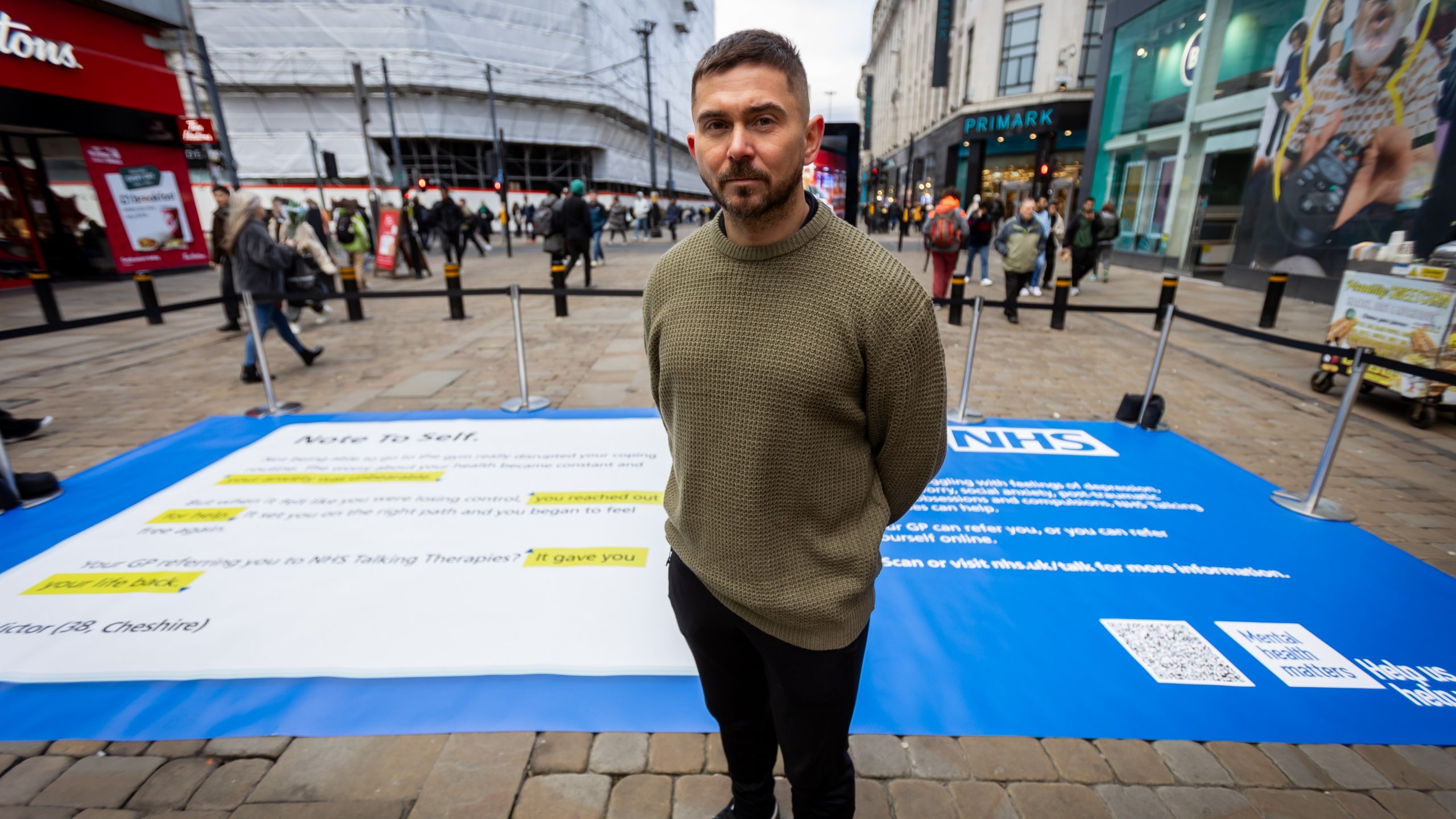I am proud to be part of the NHS Talk Therapies campaign, which provides a lifeline to those struggling with their mental health. As someone who has personally experienced the benefits of talking therapy, I am honored to share my story and inspire others to seek help and support.
My problems with anxiety started many years ago. But here is a catch: I wasn’t fully aware of it. I also couldn’t identify it was getting worse and worse till it was bad.
Please remember that the insights shared in this post are based on my personal experience and are not intended to replace professional diagnosis. You must seek the guidance of a mental health expert if you need assistance. I will delve into this a bit more later.
I was diagnosed with GAD, which is a general anxiety disorder. However, what is affecting me most is anxiety related to my health. Health anxiety, a type of anxiety disorder, is an intense, persistent worry about having or developing a severe illness. It’s not just an occasional concern but an obsessive fear that overshadows daily life.
Imagine constantly fretting about every twinge, itch, or ache, misinterpreting them as hidden dangers. People with health anxiety often overanalyze normal bodily sensations. A slight headache becomes a tumor. Compulsively checking the body is a regular daily task, mainly searching for lumps, pains, or anything resembling illness. Doctors’ reassurances are fleeting, prompting endless Googling or questions. Avoiding medical TV shows or anxious friends becomes the norm. This vicious cycle fuels anxiety, impacting daily living and overall well-being.
The cause
It is extremely hard to identify the cause of my anxiety with 100% certainty, but I have two leading theories.
My ulcerative colitis is first. It is not only the unpredictability of the disease itself but also everything associated with it, like visits, tests, prescriptions, and medication (mainly side effects). First, upon diagnosis, you are told that you are at high risk of developing colorectal cancer due to prolonged inflammation in the intestine. Doctors usually explain at this point how to spot symptoms and explain why they are taking regular biopsies. The longer you have the condition, the greater risk you are at, so you know the time is ticking. Secondly, side effects of medication. This can be anything from growing hair on your tongue (a side effect of prednisolone) to developing incurable, rare cancer (a side effect of biological treatment). Another thing is the messages you are receiving. I have been prescribed in the past a drug called azathioprine, which is usually prescribed to patients after organ transplant. Then, for the past three years, I have been taking a drug called mercaptopurine, which is chemotherapy for leukemia patients. I have been reading medication leaflets and looking for the side effects, and I made a sport out of it.
I was born in the mid-80s as a gay man. I was entering adulthood at odd times – the end of the ’90s and the beginning of the 2000s. The awareness about HIV and AIDS at this time was still very low. It was seen as a problem that affected only gay people, and there was a belief that all gay people would die of AIDS. Imagine a 16-year-old me telling someone I’m gay, and they are asking me if I already have AIDS or if I’m due to get it soon. Over the years, I have developed a compulsion for testing; even in most cases, there was no logical reason to do so. There were times when I had my regular HIV test done at doctors, but then I got a private one just to be sure. And that could be, at times, I didn’t even have sex with anybody. But I was doing it in case the previous tests were false negative.
Testing
Have I been doing only HIV tests? Of course not. And this is also the biggest paradox of my anxiety. On the one hand, I had this persistent compulsion to seek reassurance. Negative test results offer temporary relief from the nagging fear of illness. Each test acts like a “clean bill of health,” easing anxiety until new worries arise. On the other hand, after many years of genuine tests that were needed to control my Ulcerative Colitis, I have also developed scanxiety. My doctors require frequent blood tests (usually monthly), some x-rays, yearly colonoscopies with biopsies (sometimes a few more), fibro scans, stool samples, etc. So, this is already plenty. But for me, it wasn’t enough. If you go to any online pharmacy, you will find tons of self-testing kits (those are rapid and those you must send back to the lab). I had them all. Multiple times. Sometimes, I was taking two tests at exact times from two different suppliers. Just to be sure. The only test I think I haven’t done is a pregnancy test. Do you remember when we were sent lateral flow COVID tests? I could go through a box of them in the day just because tuna salad tasted odd.
The anxiety creates a need for action, and testing becomes a way to “control” the perceived threat. It provides a false sense of security. However, frequent tests can incur significant costs, adding financial stress to already existing anxiety. Not to mention that focusing on tests might distract from addressing the root cause of health anxiety, leading to delayed treatment.
Enough
I have shared all this with my GP. They advised that before medication (as I’m already taking plenty), try talk therapy. I have received the link via text, and I have self-referred. I had an assessment, and upon discussion with the person on the other end, we agreed I needed 1-1 support. However, I have been told there is a waiting list. My therapy started in about six weeks. We used video calls as it was in the middle of the COVID lockdown. I didn’t have to go anywhere.
I won’t describe the whole process, but I worked with a therapist to learn tools and skills to help me fight anxiety. Some of them worked great, while others didn’t work so well. The most significant weapons I had were exercise and education. Education was especially helpful since I could easily break the cycle of anxiety by distracting myself with something productive like coursework. However, I wasn’t aware that exercise played such a significant role in my mental well-being until the gym closed during lockdowns and anxiety left me in pieces.

Breakthrough
All that I heard from therapists was very logical and simple. But when your brain is occupied with anxiety, you need someone from outside to tell you this and give you a little shake. For example, my therapist explained to me why I have a compulsion to constantly test. The scary part was that she also explained that the periods of assurance that tests give me would shrink with time. And this was so true. While she was saying those words, I realized that three years ago, I was fine with one test every six months, then the year before, once a month, and at the time, I needed a test every week. At this point, I knew that it would take my whole life if I didn’t stop. All I’ll do is invent new health problems and look for reassurance, wasting time, energy, and money on the way.
During my sessions with a therapist, I had a breakthrough realization that there is an inherent unpredictability to life, including my health. I learned that it is necessary to accept the fact that there will always be a slight chance of something going wrong and that there is always a 1% chance of developing a severe illness without knowing. I know it may sound obvious when put that way, as there is nothing in the world, we can be 100% sure of. But my thoughts were dominated by anxiety; such logic was rejected and replaced with persistent worry.
Am I anxiety free?
Of course not. However, I am not my anxiety, and I refuse to let it define me. Instead, I have learned how to control it effectively so that it no longer consumes my energy. By using exercise and education as my strategies, I am determined to live a fulfilling and anxiety-free life. Learning is a never-ending journey for me that can both help to distract my anxiety and enrich my life. I believe that we should always strive to expand our knowledge and skills, and keep learning new things every day.
Please keep in mind while reading this blog post that it is about my personal journey and the methods that have worked for me. Mental health is not a common cold where doctors can give the same advice to everyone. Your mental health needs are unique to you and what works for me may not work for you. A therapist can help you find the right tools and teach you skills that will be beneficial for your individual situation.
If you are struggling with your mental health, seek help now. Recognizing your symptoms and seeking professional help can break the cycle and bring much-needed relief. Support is available.
Self-referral to NHS Talk Therapies: http://nhs.uk/talk
Free educational courses: https://www.open.edu/openlearn/

Pictures: Freuds+ https://www.freudsplus.com/


